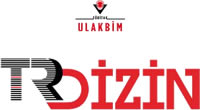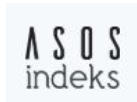Ben Sosyal Bilgiler Öğretmeni Olsaydım…: Ortaokul Öğrencilerinin Görüşleri (If I Was a Social Studies Teacher…: Views of Secondary School Students)
DOI:
https://doi.org/10.15659/ankad.v4i3.116Anahtar Kelimeler:
Sosyal bilgiler öğretmeni- tutum- öğrenci görüşleri- sosyal bilgiler dersiÖzet
Bu çalışmanın amacı ortaokul 5., 6. ve 7. sınıf öğrencilerinin sosyal bilgiler dersine ve sosyal bilgiler öğretmenlerine yönelik görüşlerini ortaya koymaktır. Nitel araştırma yöntemi ile hazırlanan bu çalışmanın verileri, 2018-2019 eğitim öğretim yılında Antalya’da bulunan bir devlet okulunda toplanmıştır. Çalışmaya 5. sınıftan 32, 6. sınıftan 35, 7. sınıftan 33 olmak üzere toplam (49 kadın, 51 erkek) 100 öğrenci katılmıştır. Verilerinin çözümlenmesinde betimsel analizden yararlanılmıştır. Genel olarak araştırmanın sonuçlarına bakıldığında, öğrenciye yönelik tutum, dersin işlenişine ve derste kullanılacak öğretim yöntem ve tekniklerine yönelik görüşlerde bulunulduğu belirlenmiştir. Sosyal bilgiler dersinin eğlenceli olarak, oyunlarla, farklı yöntem ve tekniklerden faydalanarak işlenmesi gerektiği belirtilmiştir. Ayrıca dikkat çekici olarak sosyal bilgiler dersinin sevdirilmeye ihtiyacı olan bir ders olarak belirtildiği, sosyal bilgiler öğretmeni olsalar öncelikle dersi sevdirmeye çalışacaklarını ifade ettikleri belirlenmiştir. Bu sebeple sosyal bilgiler öğretmenleri tarafından öğrencilerden dersle ve kendileri ile ilgili düzenli dönütler alarak dersin niteliğini arttırmaya çalışmaları, derste farklı öğretim tekniklerini kullanmaya önem vermeleri önerilmektedir.
Referanslar
Akbaba, B. (2015). Sosyal bilgiler öğretiminde görsel materyallerin kullanımı. İçinde M. Safran (Ed.), Sosyal bilgiler öğretimi (4. baskı), s.283-319. Ankara: Pegem Akademi.
Akhan, N. E. & Kaymak, B. (2019). Sosyal bilgiler öğretmen adaylarının fakültelerindeki öğrenme ortamlarına yönelik görüşleri. Journal of History School, 43, 1503-1534.
TAkhan, N. E. 2T Kaymak B. (2020). The views of secondary school students toward social studies learning environments as a social studies laboratory. HAYEF: Journal of Education, 17(1), 121-149.
Aktepe, V., Tahiroğlu, M. 2T Meydan, A. (2014). Öğrencilere göre etkili bir sosyal bilgiler
öğretimi için sınıf öğretmenlerinden beklentiler. Researcher: Social Science Studies, 2 (2), 1-11.
TAltıparmak, K., Aklar, M.A. 2T&2T Dursun, G. (2017). Bir günlüğüne matematik öğretmeni olsaydım neler yapardım/yapmazdım? : öğrenci görüşleri. 2TYYÜ Eğitim Fakültesi Dergisi, 14 (1), 1117-1140.
TBaşaran, A. R. 2T&2T Baysal, S. (2016). Öğretmen adaylarının ideal bir öğretmen hakkındaki görüşleri. İçinde Ö. Demirel & S. Dinçer (Ed.), Eğitim Bilimlerinde Yenilikler ve Nitelik Arayışı (1. bs, ss. 29-44). Ankara: Pegem Akademi Yayıncılık.
Blumenfeld, P. C., Mergendollar, J., & Swarthout, D. (1987). Task as a heuristic for understanding student learning and motivation. Journal of Curriculum Studies, 19(2), 135- 148.
Chan, W. K. (2011). Preservice teacher education students’ epistemological beliefs and conceptions about learning. Instructional Science, 39(1), 87-108.
Cülha, A., Ateş, R. & Nazlı, K. (2018). Özel yetenekli öğrencilerin ideal öğretmene ilişkin metaforları. Harran Education Journal, 3 (1), 39-51.
Çakar, Ö. & Öner, Ü. (2007). Etkili bir sosyal bilgiler öğretimi için öğrenci gözüyle öğretmenden beklentiler. Ulusal Eğitim Bilimleri Kongresi, Gaziosmanpaşa Üniversitesi, 5-7 Eylül Tokat.
Çelikkaya, T. (2013). Sosyal bilgiler öğretmenlerinin öğretim araç-gereç ve materyallerini kullanma düzeyleri. On dokuz Mayıs Üniversitesi Eğitim Fakültesi Dergisi, 32 (1), 73- 105.
Çelikkaya, T. & Kuş, Z. (2009). Sosyal bilgiler öğretmenlerinin kullandıkları yöntem ve teknikler. Uludağ Üniversiesi Eğitim Fakültesi Dergisi, 22 (2), 741-758.
Çelikten, M. & Can, N. (2013). Yönetici, öğretmen ve veli gözüyle ideal öğretmen. Selçuk Üniversitesi, Eğitim Fakültesi Dergisi, 15, 253-267.
Çetin, Ş. (2001). İdeal öğretmen üzerine bir araştırma. Millî Eğitim Dergisi, 149.
Thttps://dhgm.meb.gov.tr/yayimlar/dergiler/Milli_Egitim_Dergisi/149/cetin.htm adresinden 11.05.202059T de alınmıştır.
David, E. S. & Vera, E. N. (2017). Socıal studıes teachıng resources ın the 21st century. International Journal of Sociology and Anthropology Research, 3 (4), 8-14.
Demir, S. B. & Akengin, H. (2010). Sosyal bilgiler dersine yönelik bir tutum ölçeğinin geliştirilmesi: geçerlik ve güvenirlik çalışması. E-Uluslararası Eğitim Araştırmaları Dergisi, 1 (1), 26-40.
Dilekmen, M. (2008). Etkili eğitim için etkili öğretmenlik. Atatürk Üniversitesi Sosyal Bilimler Enstitüsü Dergisi, 12(2), 213-221.
Eccles, J. & Wigfield, A. (2002). Motivational beliefs, values, and goals. Annual Review of Psychology, 53, 109-133.
Eret, E. (2013). An assessment of pre-servıce teacher education in terms of preparing teacher candidates for teaching. Unpublishen Doctoral Thesis, The Department of Educatinal Sciences, Middle East Technical University, Ankara.
Evans, J. F. (2002). Effective teachers: An investigation from the perspective of elementary school students. Action in Teacher Education, 24(3), 51-62.
Gençtürk, E., Akbaş, E., & Kaymakçı, S. (2012). Qualifications of an ideal teacher according to social studies preservice teachers. Educational Sciences: Theory & Practice, 12(2), 1569-1572.
Gonser, S. (2018). How social studies can help young students make sense of the world.
Thttps://chalkbeat.org/posts/ny/2018/07/12/how-social-studies-can-help-young-students-
make-sense-of-the-world/59T adresinden 01.04.2020 de alınmıştır.
Gökçe, E. (2002). İlköğretim öğrencilerinin görüşlerine göre öğretmenlerin etkililiği. Ankara Üniversitesi Eğitim Bilimleri Fakültesi Dergisi, 35(1-2), 1-9.
Gömleksiz, M. N. & Kan, A. Ü. (2013). Sosyal bilgiler dersi tutum ölçeğinin geçerlik ve güvenirlik çalışması. Fırat Üniversitesi Sosyal Bilimler Dergisi, 23(2),139-148.
Greimel-Fuhrmann, B. & Geyer, A. (2003). Students evaluation of teachers and instructional quality analysis of relevant factors based on empirical evaluation research. Assessment and Evaluation in Higher Education, 28(3),229-238.
Gültekin, M. (2015). İlköğretim öğrencilerinin ideal öğretmen algısı. Turkish Studies, 10 (11), 725-756.
Gündüz, M. (2018). İlkokul öğrencilerinin etkili öğretmen hakkındaki düşünceleri. YYÜ Eğitim Fakültesi Dergisi, 11 (1), 114-128.
Heafner, T. (2004). Using technology to motivate students to learn social studies.
Contemporary Issues in Technology and Teacher Education, 4(1), 42-53.
Hebert, S.B. (2002). Expectations and experiences: case studies of four first-year teachers.
LSU Doctoral Dissertations. 3113. https://digitalcommons.lsu.edu/cgi/viewcontent.cgi?article=4112&context=gradschool_ dissertations adresinden 07.05.2020 de alınmıştır.
Kan, Ç. (2006). Etkili sosyal bilgiler arayışı. Kastamonu Eğitim Dergisi, 14 (2), 537-544. Karasar, N. (2006). Bilimsel araştırma yöntemi. Ankara: Nobel Yayın Dağıtım.
Kincheloe, J. L. (2001). Getting beyond the facts: teaching social studies/social sciences in the twenty-first century (second edition). Peter Lang AG.
Kyle, D. W. (2011). Families’ goals, school involvement, and children’s academic achievement: A follow-up study thirteen years later. The School Community Journal, 21(2), 9-24.
McDonald, N. & Fisher, D. (2006). Developing arts- loving readers. Rowman & Littlefield Education: USA.
McLemore, W. P. (1976). Social studies strategies for today’s learners. New York: MSS Information Corparation.
Mızrak Karcı, M. (2016). Öğrenci gözüyle ideal öğretmenin özellikleri: Gazi mesleki ve teknik Anadolu lisesi örneği. Milli Eğitim Dergisi, 209, 80-101.
TMiles, M. B., 3T&3T Huberman, A.M. (1994). Qualitative data analysis: An expanded source book (2nd ed.). Thousand Oaks, CA: Sage.
Milli Eğitim Bakanlığı (2018). Sosyal bilgiler dersi öğretim programı (İlkokul ve ortaokul 4,5,6 ve 7.sınıflar). Ankara.
Moreira, J. S. (2002). Student perceptions of ideal teaching practices. A dissertation submitted to the faculty of the graduate school in partial fulfillment of the requirements for the degree of doctor of education. University of Pacific Stockton, California.
Murphy, K.P., Delli, L. A.M. & Edwards, M. N. (2004). The ideal teacher and ideal teaching: Comparing beliefs of second-grade students, preservice teachers and inservice teachers. The Journal of Experimental Education, 72(2), 69-92.
NCSS (1994). National curriculum standarts for social studies: executive summary. 59Thttps://www.socialstudies.org/standards/execsummary adresinden 07.04.202059T tarihinde alındı.
Nicholas, H. & Willliams, A. (2010). School experience influences on pre-service teachers’ evolving beliefs about effective teaching. Teaching and Teacher Education, 26(2), 278-
schly, D. J. (2007). Effective classroom management: Teacher preparation and professional development. 59Thttps://files.eric.ed.gov/fulltext/ED543769.pdf adresinden 23.05.202059T de alındı.
Petty, T. M., Good, A. J. & Handler, L. K. (2016). Impact on student learning: National Board Certified Teachers’ perspectives. Education Policy Analysis Archives, 24 (49), 1-19.
Ross, E. W. (2006). The social curriculum. Purposes, problems and posibilities (third edt.).
Albany: State University of New York Press.
Schug, M. C., Todd, R. J. & Beery, R. (1982). Why kids don't like social studies. Paper presented at the Annual Meeting of the National Council for the Social Studies, Boston, MA.
Sezer, Ş. (2018). Öğretmenlerin sınıf yönetimi tutumlarının öğrencilerin gelişimi üzerindeki etkileri: fenomenolojik bir çözümleme. Hacettepe Üniversitesi Eğitim Fakültesi Dergisi, 33 (2), 534-549.
Shivakumar, G.S. & Manichander, T. (2013). Restructuring the future classroom - A global perspective. Journal on School Educational Technology, 9(2), 19-24.
Sivakumar, R. (2018). Methods and resources in teaching social studies. Journal of Contemporary Educational Research and İnnovations, 8 (2), 207-216.
Telli, S., Brok, P. & Çakıroğlu, J. (2008). Öğretmen ve öğrencilerin ideal öğretmen hakkındaki görüşleri. Eğitim ve Bilim, 33(149), 118-129.
Yıldırım. A. & Şimşek, H. (2013). Sosyal bilimlerde nitel araştırma yöntemleri (9. Baskı).
Ankara: Seçkin Yayınları.
Yurdakal, İ. H. (2019). Ortaokul öğrencilerinin ideal öğretmen ve ideal öğretim süreçlerine yönelik görüşleri. III. Uluslararası Sınırsız Eğitim ve Araştırma Sempozyumu. USEAS 2019.
Zevin, J. (2009). Young citizens of the world-teaching elementary social studies through civic engagement. New York: Routledge.
Yayınlanmış
Nasıl Atıf Yapılır
Sayı
Bölüm
Lisans
Telif Hakkı (c) 2024 Anadolu Kültürel Araştırmalar Dergisi (ANKAD)

Bu çalışma Creative Commons Attribution-NonCommercial 4.0 International License ile lisanslanmıştır.













